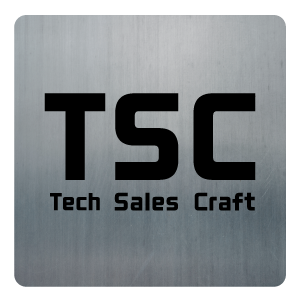SEs and other friends: You need to take responsibility to get yourself trained. Training is a personal responsibility.
It’s great when your employer builds training time into your duties and provides helpful resources. There is a clear case for investing in employee training and professional development. It’s smart for employers to provide some level of investment in ongoing training and education, especially in fast-paced tech environments.
The Bad News
However, there are some pretty common scenarios where employers don’t put much (or any) emphasis on employee training:
In startups and early-stage companies, there is often so much to do and limited funding for anything that is not absolutely essential. But you knew this when you hired on.
There are also companies that just don’t invest much and take the approach (implicitly or explicitly) that employees are just going to leave, especially if they develop and grow their skillset. As a result, they don’t put a high priority on training and development.
At the end of the day, YOU need to find time to do this and put priority on it. You may have to invest some evenings and weekends of your own time, and you might even need to spend some money.
The Good News
The good news here is that we’re in an environment today where it’s easier than ever to learn new things and acquire new skills.
The Internet was built specifically with the intent of sharing information. One of the best things about the Internet (and ironically one of the worst things about it) is that you can create and publish anything and others can find it and access it. Focusing on the good side of things here, for any topic you’d like to learn about, there is at least some content out there. And it’s not just text wrapped up in html; there are videos, podcasts, and more that can help you find info that fit your preferred modes of learning. Google, Bing, and beyond all help you find that info.
On top of all that potentially useful info, we now have AI tools that help us assimilate and summarize info. (You knew I had to work AI into this piece somewhere). You can ask your favorite LLM AI tool to summarize the key skills required for skateboarding, basic features and uses of the Rust programming language, and many other things you can think of when you’re done reading this post.
Of course, let the buyer beware in all these things, both the sources of info and the AI-generated summaries and pointers to additional info. You need to keep an eye out for things that don’t look right, quality of information, bias that materially impacts or colors the info, and even misinformation. Being a critical thinker is an absolutely necessary skill. But in most cases, people and organizations that bother to publish content do so with the intent to share accurate info.
There is one more very good thing to keep in mind: for the most part, the knowledge and skills you acquire stay with you beyond this job and hopefully much more. You are not just investing in something that your current project or employer needs – you’re investing in yourself.
Old Dog, New Tricks
Let me share an anecdote on this front that I hope will encourage you. In one of my first fractional Architect gigs (see here for more background on fractional services), I had to come up to speed on a prototype system that I had little experience with and learn about it rather quickly. This challenge came at me in at least two forms:
- I had to quickly learn some fundamental technologies that were all very new to me prior to this project: a custom graph theory analysis tool, AWS IAM, GitHub, and Terraform Cloud
- I had to understand how they all worked together in a process flow to update customer-facing demos, with a demo narrative and relevant customer use cases
Given this challenge, some excellent help (especially the lead architect of the system), and good online reading and resources, I dived in. Over the course of about four weeks and just under 40 total hours, I was able to give solo demos of the system.
More Good News
In such a short period of time, I was very reluctant to give my first dry run demo, even in a very safe environment. My team members gently prodded me to just try it, even though I wanted just a couple more runs in front of the proverbial mirror. I felt like Cameron in Ferris Bueller’s Day Off: just like he knew that Ferris was not going to stop bugging him to go out on Ferris’ “day off”, they were not going to let up on me. That proved to not be the case. It all came together quite nicely. Many years of experience as an SE and SE leader helped, especially as I thought about key examples from some of my favorite “technical storytellers”.
There was also a key learning that I didn’t expect: I had to determine what I did NOT need to know. My tendency is to dive in and soak up lots of information. That’s great when you have lots of time, but I was getting paid to do this, with timelines that had to be met, so I intentionally had to limit my focus to the necessities of the demo. I needed to rely on other SMEs for deeper technical questions, and spend more time on the likely first-order questions I had and that customers would have when seeing the demo.
All in all, I have to say that this was all REALLY fun. I finally had a reason to dig into these technologies and start learning about them. And at my career stage (see “Old Dog” above), the ability to learn new things and demo and articulate what’s going on is extremely gratifying.
Tips for Learning
If you want to take a new topic or area of study seriously, you need to make a plan. That plan doesn’t need to be the same for everyone, but the plan should work for you.
Let me suggest the following things to try:
- Identify and prioritize, with some specificity, subjects you’re interested in, through job needs or personal curiosity
- Set aside time weekly or monthly and track the time you spend learning
- Try free resources first: this is good use of AI tools, identifying no-cost websites, papers, videos, podcasts, etc.
- Find a way to work learning time into your job: it’s not hard to justify at least some time spent learning about something that directly contributes to your duties
- Are you cert-motivated? Then go for the certs! I tend to be at least a little cert-motivated because of the “hard metric” (and some dopamine) you get from passing an exam. Just remember: passing a cert exam is some indication that you probably learned something, but it’s not proof that you can put it into practice
- Take notes: some folks say that taking handwritten notes are the best for retention, but typing notes has benefits as well; tools that take your written/printed notes and turn them into machine-searchable documents may be the killer combo here
- Learn it like you need to explain it to others: this really helps with retention and putting things into practical terms
Final Thoughts
Your training is a personal responsibility. It might not be “fair” that certain employers underinvest in development time for their employees. I’m taking this from the perspective of doing what is under your control. You can invest time and effort in the things you want and need to learn about. Watch fewer streaming shows and movies. Spend less time on your favorite time-sucking social media sites. You can find at least some time to invest. I’m not a full-blown Stoic, but “training is a personal responsibility” is a very constructive attitude to take.
The mainstream view on this topic usually includes classes, teachers, and subjects we hated. My children look at me funny when I talk about loving school, so I’m definitely not in the mainstream on this. I really do love to learn. I get bored in a job where I am not learning anything new. There isn’t a single course that I absolutely hated in high school or university. Then again, Old Dog Syndrome may be partially to blame for that…
For SE leaders and other team leaders: it’s your job to help facilitate this. Advocate for time and resources for your team to get what they need to do the job. Foster an environment where learning is encouraged and supported. And even lead by example: what are you doing to gain new skills and knowledge? How are you communicating that to your team?
I greatly appreciate Amazon’s inclusion of “Learn and Be Curious” in their leadership principles. We live in an ever-developing tech environment where we will always have to keep learning. It’s never too late to start developing the habit of life-long learning.

